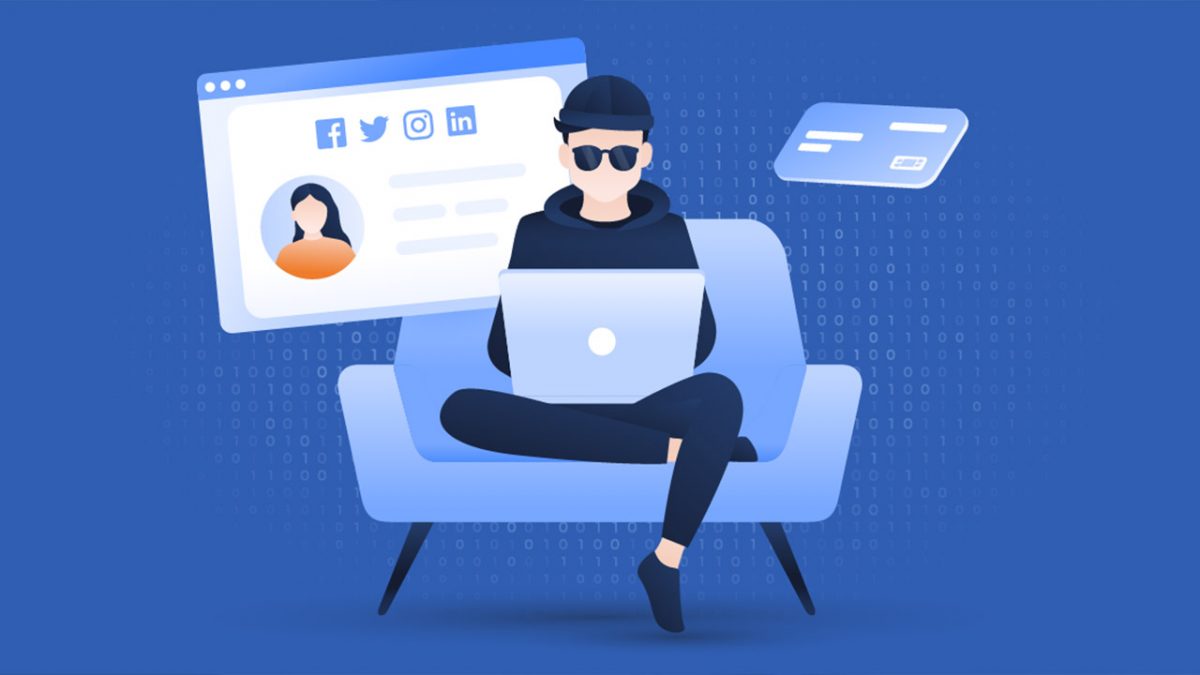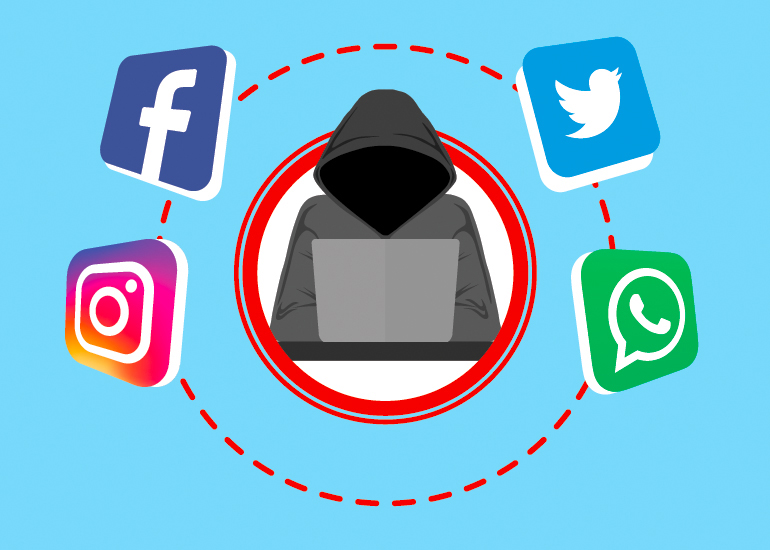Three Common Security Errors that Endanger Your Social Media Accounts

Three Common Security Errors that Endanger Your Social Media Accounts
The prevalence of social media hacking has made it a significant security concern, with cybercriminals often targeting unsuspecting individuals. In 2018 alone, more than 30 million Facebook accounts were compromised, and such incidents continue to occur. These developments are a cause for worry, especially for individuals who value their privacy online.
Breaches in cybersecurity and privacy can have severe consequences, underscoring the importance of how we manage our online privacy and credentials. Rather than waiting until one's accounts are hacked, it is advisable to proactively address common errors that may lead to security vulnerabilities and prevent such breaches.
In this article, we’ll cover the most common mistakes that people make in terms of social media security.

Choosing weak and predictable passwords
The prevalent use of weak passwords and the habit of utilizing identical passwords for multiple online accounts are security vulnerabilities that significantly impact user safety. According to a recent survey on cybersecurity practices conducted by ExpressVPN, the average person uses the same password for six or more online platforms. This creates substantial risk, as any compromised credentials could result in a data breach across all accounts.
Featured news: Bing Chat AI may become emotional
To avoid this risk, it is recommended that users generate unique passwords and store them using password managers, rather than relying on simple, memorable passwords. It is also advisable to avoid saving passwords on devices such as smartphones, PCs, or tablets, which can put one's accounts at risk if the device is compromised.
When creating strong passwords, GCF Global suggests incorporating a combination of letters, numbers, and special symbols, while avoiding any personal information. This approach helps to keep passwords unpredictable and therefore more secure. It is essential to avoid sharing social media account passwords with anyone, even close family members, as a password leak could occur and potentially compromise your accounts.

Disregarding security essentials
Following the resolution of password-related vulnerabilities, you can further enhance the safety of your social media accounts by implementing two-factor authentication (2FA). Setting up 2FA for social media accounts is a quick and straightforward process that should take no longer than four minutes to complete. The time invested in this extra security measure is well worth it compared to the potential risks of compromised credentials.
To maximize privacy and security, it is recommended that you check and update your social media accounts regularly. This practice will help to ensure that the most effective security measures are in place, reducing the likelihood of cybersecurity breaches or personal information leaks.
Interacting with suspicious links
CISCO's 2021 report on cybersecurity trends reveals that approximately 90% of hacks and data breaches result from phishing attacks. This social engineering technique involves the use of spam links to trick people into revealing personal information.
Some phishing links replicate popular social media platforms such as Instagram and Twitter, with login pages designed to capture your account information. If you enter your login details on these fake pages, the hackers can gain access to your credentials, particularly if you employ the same password for multiple accounts.
Phishing attacks are typically delivered via email, and you must exercise caution when clicking on suspicious links or downloading files, even if the email appears to be legitimate. Clicking on such links may cause malware to be downloaded onto your system, providing hackers with access to personal and banking information, as well as social media passwords.
Also read: Microsoft draws first conclusion from Bing’s AI launch
Remain vigilant
Given the increasing prevalence of social media hacking, it is crucial to avoid common security mistakes and exercise greater caution to safeguard your accounts. Implementing robust security measures such as enabling two-factor authentication and using a strong password is essential for protecting personal information and maintaining privacy on social media platforms.
In summary, it is crucial to prioritize security and take proactive measures to safeguard your accounts against potential data breaches. Additionally, being vigilant and cautious while navigating online spaces can help prevent phishing attacks and other security risks.


















Only one error: People don’t know and/or don’t follow the “Rule No.1” — “Trust No One!”, as mentioned in a movie.
The first error is to think too simple because you forgot you are on the internet instead of thinking logically just like when you are locking your home/locking your car/installing camera/reload your gun/stocking up on ammo/learning new tricks and tips.
The first error is to have one. The second error is exposing your life to strangers. The third but mostly not the less important is thinking that the people that is watching your life are your friends.
i never understood how ppl would give their private information for public domain usage, then not interact with real life ppl surrounding them but be happy that 2000 friends online is a norm..
Just put a big sign out side your house saying to everyone what you do then invite them inside, weirdos
The first error is going online. The second error is staying online once you have a look around and realize that the webernet is the fiery abyss of the demonic realm.
@Andy, amish people should agree.
The first and fatal error is not using a tinhat. Going online without it, is the second one